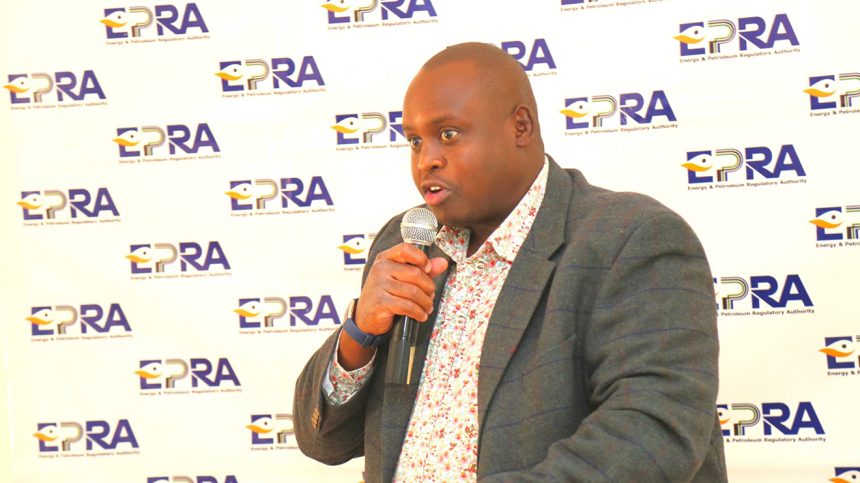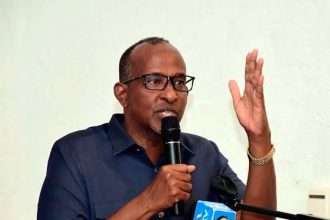Kenyan drivers are facing significant challenges once again as fuel prices have surged, igniting widespread anger and frustration throughout the nation.
The Motorists Association of Kenya (MAK) has publicly criticized the government, claiming that it is taking advantage of motorists through excessive and unwarranted taxation.
In a strong statement released on July 17, the association condemned the Ministry of Energy and the Energy and Petroleum Regulatory Authority (EPRA) for increasing the price of Super Petrol by Ksh 8.99 and Diesel by Ksh 8.67 per litre, especially given that global oil prices have remained below $70 per barrel.
In response to these rising costs, the association is calling for urgent reforms and has warned that if their concerns continue to be overlooked, motorists are prepared to take action, potentially resorting to protests and legal challenges to make their voices heard.
Motorists Say Fuel Hike Is Unjustified and Exploitative
The Motorists Association minced no words when calling out EPRA’s decision. They described the abrupt increase in fuel prices as an insult to hardworking Kenyans who already endure a heavy tax burden. According to MAK, nearly half the cost of every litre of fuel goes to taxes, making the fuel artificially expensive and damaging to the economy.
“When world prices were falling, EPRA only reduced fuel prices by one shilling. Now, they increase it by almost nine shillings. That’s not market-driven—that’s pure exploitation,” the statement said.
The association pointed out the contradiction in the government’s reasoning. Global oil prices have remained stable, yet local pump prices keep rising. MAK noted that this trend suggests a deliberate policy of squeezing motorists to fill the national treasury, rather than adjusting prices based on fair global market conditions.
Even worse, the association says this policy disproportionately hurts small business owners, boda boda riders, public service operators, and private motorists alike. As fuel prices rise, so do the prices of goods and services, triggering inflation and eroding purchasing power.
Motorists Demand a Return to Transparent Fuel Pricing
In response to the fuel hike, the Motorists Association issued several urgent demands. At the top of the list is a return to a competitive and transparent pricing model.
They want the government to reinstate the Open Tender System (OTS), a market-driven mechanism that allowed oil to be sourced from the most affordable suppliers. This system encouraged competition and prevented price manipulation.
“Pump prices must reflect world market trends, not secret deals or bureaucratic schemes. We want fair pricing based on transparent tendering processes,” MAK stated.
Additionally, they rejected the current formula used by EPRA to determine pump prices. They argued that the method is opaque, unfairly benefits oil marketers, and lacks proper public or parliamentary oversight. The Motorists Association believes that only an open system can protect the public from artificial price inflation.
“If our demands are not met,” the statement warned, “we will be left with no choice but to organize peaceful protests and seek justice through the courts. Enough is enough.”
Poor Regulation and Hidden Loans Worsen the Crisis
The Motorists Association didn’t stop at fuel prices. They listed several deeper issues plaguing the fuel industry.
First, they accused EPRA and the Energy Ministry of failing to protect consumers from adulterated fuel, which continues to damage vehicles across the country. According to MAK, when rogue fuel dealers are caught, they are simply fined while affected motorists receive no compensation.
“Fuel from even leading marketers has been found to have lower octane levels. This not only reduces performance but also endangers road safety,” the statement read.
They called for mandatory compensation for all victims of contaminated fuel and tougher penalties for those who sell it.
Second, they decried revelations from Ndindi Nyoro, the former Budget Committee chair, who claimed that the government secretly used the Fuel Levy as collateral for a massive Ksh 175 billion loan.
MAK condemned the government for recklessly using the Fuel Levy as collateral without involving the public or seeking parliamentary approval.
Lastly, the association raised alarm about the government-to-government oil import deal, accusing authorities of hiding its details despite claiming it would stabilize prices.
They demanded immediate disclosure of the beneficiaries of these shadowy arrangements.
Protest Is the Only Option Left
The Motorists Association’s statement makes one thing clear—motorists are fed up. From over-taxation and secretive fuel deals to contaminated fuel and lack of accountability, the system appears broken. And instead of helping, government policies have only worsened the situation.
Even Tanzania, which sent a delegation to Kenya for benchmarking, reportedly returned home and implemented a sharp Ksh 27 per litre fuel price increase—suggesting that poor policy choices are becoming a regional issue.
Unless the government listens, MAK has vowed to mobilize peaceful protests and take legal action. Their message is simple: motorists can no longer afford to pay the price of silence.



